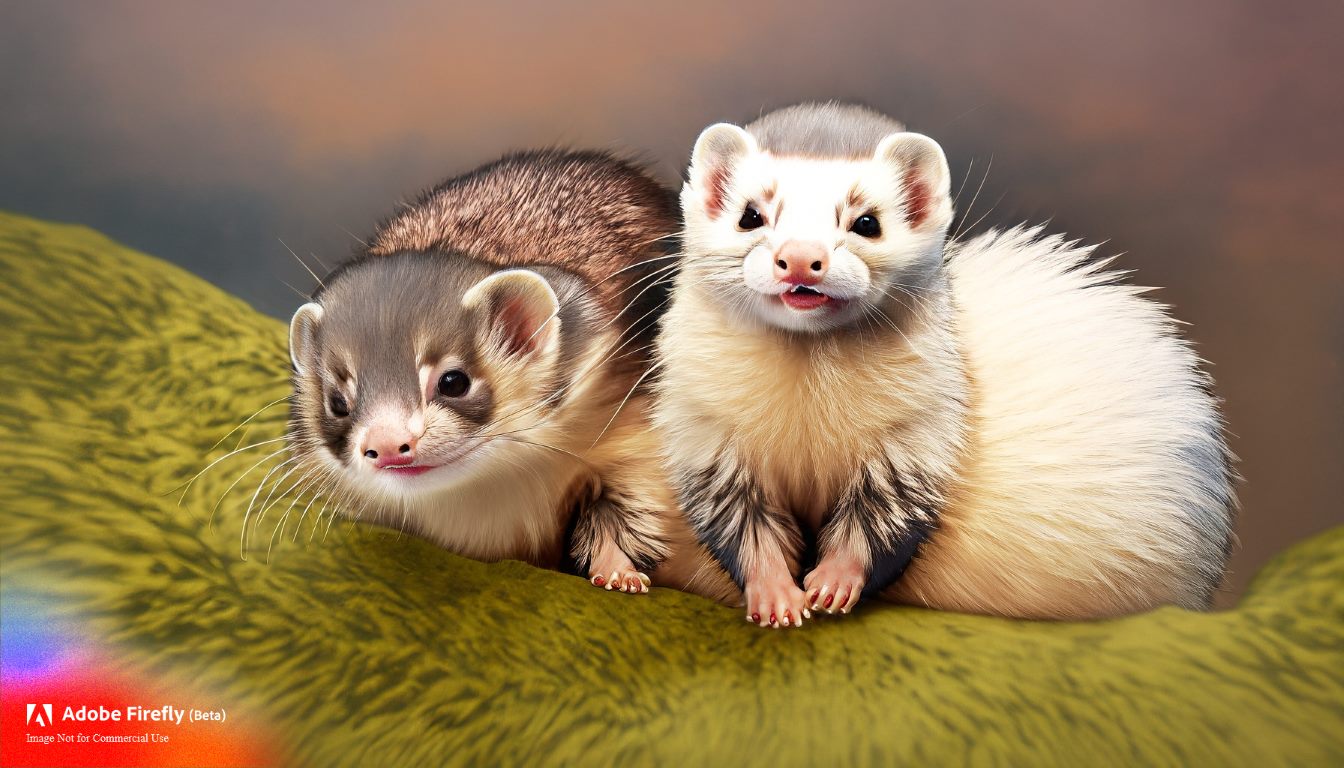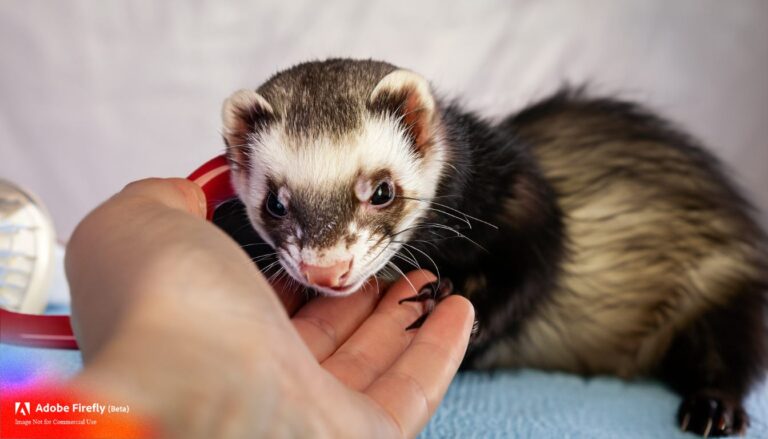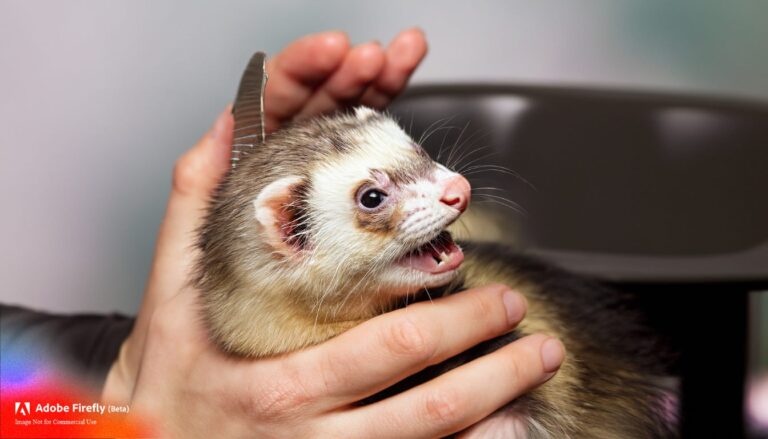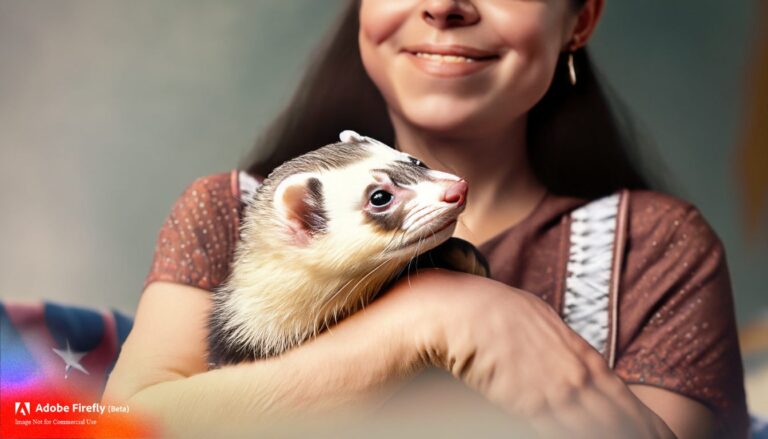
Ferrets are very social by nature. They need companions in order to thrive as nature intended. But who or what would make a good companion for your ferret? Here are some choices.
Us humans
As the proud owner of a ferret, you are the obvious first choice as a ferret companion. Your ferret needs a chance to get to know you. That’s part of the reason he or she needs at least two hours each day playing outside the cage. Your ferret needs a time to snuggle with you, to wrestle with you, to play hide-and-seek etc.
By the same token, you need to spend time with your ferret. For one, he or she is great stress relief. Your bad day at work will melt away when you get down on the floor to play with your furry friend. Also, spending time with your ferret allows you to get to know him or her. Every time you feed your ferret, clip its claws or take it for a walk, you’re learning more about your pet and the animal world.
Other humans are also great companions for your ferret. Just be sure they are old enough and intelligent enough to do so safely. A toddler or a person with mental disabilities may not know how to safely handle your ferret or what to do if your ferret nips or bites. Provide supervision for those who are new to ferrets and their ways.
Other ferrets
Of course, there are times when you can’t be with your ferret. The most obvious choice for a ferret companion is another ferret. That way, there will always be someone around for your fuzzy to play with. In addition, one set of supplies and food will suffice for your whole ferret business (the collective noun for a group of ferrets).
When introducing a new ferret to the business, do so gradually. Hold the new ferret securely in your arms while your other ferrets check it out. Let them investigate for a few minutes and then separate them. (You may need separate cages for a short time.) As they adjust to each other, let these meeting times lengthen until it is clear they are ready to play. How fast this introductory period passes depends on the individual temperaments of your ferrets. In most cases, they adjust fairly quickly.

Cats
Similarly, temperament plays a big role as to whether ferrets and cats will get along. Sometimes they do, sometimes they definitely do not. In some cases, a cat and a ferret will only get along very grudgingly after a very long time. Some cats are very territorial by nature and will consider a new ferret to be a threat.
Be especially cautious if a kit or a kitten is involved: a young animal needs extra care in the best of circumstances. As with introducing a ferret, closely supervise the times they are together. Don’t hesitate to separate them if either animal becomes hostile.
Dogs
Dog-and-ferret households can be quite complicated. Remember that many dog species were originally bred to hunt small prey, so they may instinctively think of your ferret as dinner rather than a dinner companion. Large dogs may physically overwhelm a ferret and really forget their own strength when playing with it. Still, quite often ferrets and dogs do get along quite well and can entertain each other for hours.
Hamsters/gerbils/mice
It’s generally not a good idea to have these rodents as pets when a ferret is in the household. Ferrets feed on them and would instinctively hunt them down. It’s not a behavior that can be bred out of a ferret either, so these other pets would never be completely safe from harm.
Birds/reptiles/other pets
Depending on the species, your ferret may look on these other pets as food or they just may not be able to interact with them at all. For instance, your pet snake housed in an aquarium would never be able to play with your fuzzy. A bird would be inclined to fly around the room when not in its cage, so your ferret would never really get a chance to meet Polly the Parrot.
Getting to know you
As with most of us, ferrets and other creatures adapt better the younger they are. A young kit, kitten or puppy is more likely to adjust to a new companion than an older one. In any case, supervise them closely while they get to know each other and be prepared to move quickly to separate them.
Always allow each pet a place to get away. Meeting someone new can be stressful and a ferret may need a place to hide for awhile. The same holds true for your other pet.
Summary
Finally, it is wise to recognize that sometimes things just don’t work out as planned. If your ferret or other pet just can’t seem to accept the situation, you may have to find one of them a new home. It may be best for all concerned.
Adjusting to a new ferret, or any new family member, is not always an easy proposition. But by choosing your pets wisely and with a bit of persistence, you can make it work.






